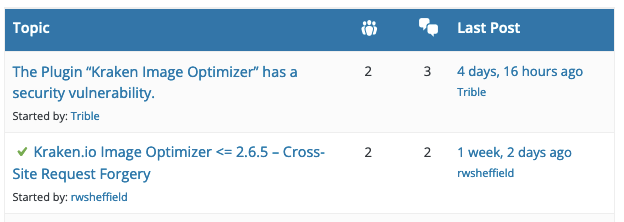Wordfence is Claiming That WordPress Plugin Has Vulnerability Despite Having No Idea if That is True
In our monitoring of the WordPress Support Forum for discussions possibly discussing WordPress plugin vulnerabilities, we have recently been seeing a lot of topics involving vague claims coming from the WordPress security provider Wordfence, through their Wordfence Security plugin, that other WordPress plugins contain vulnerabilities. Here is one such message coming from Wordfence, mentioned in a topic:
The Plugin “WP Affiliate Platform” has a security vulnerability.
Type: Plugin Vulnerable
Critical
Details:
Plugin Name: WP Affiliate Platform
Current Plugin Version: 6.3.8 [Read more]

